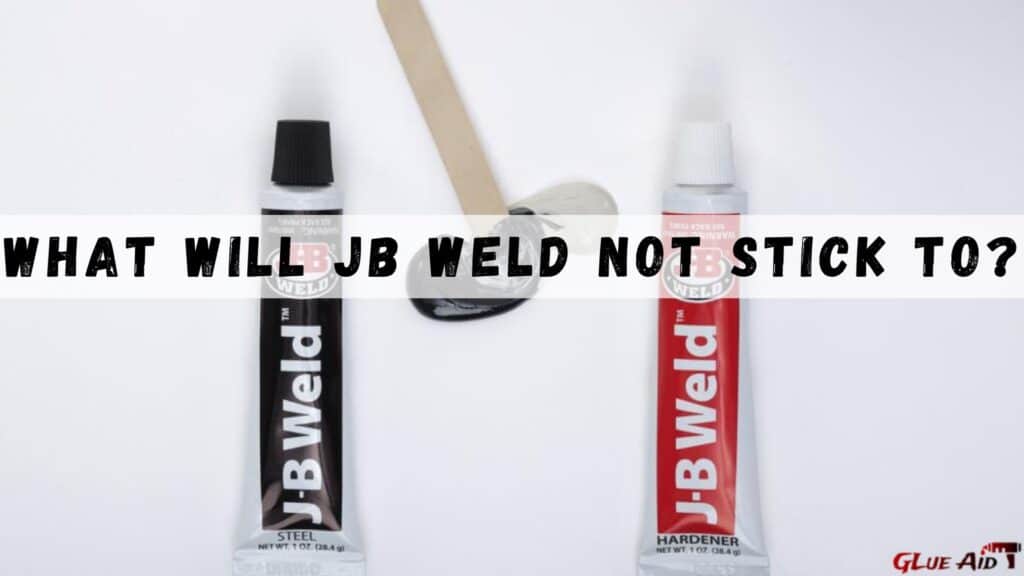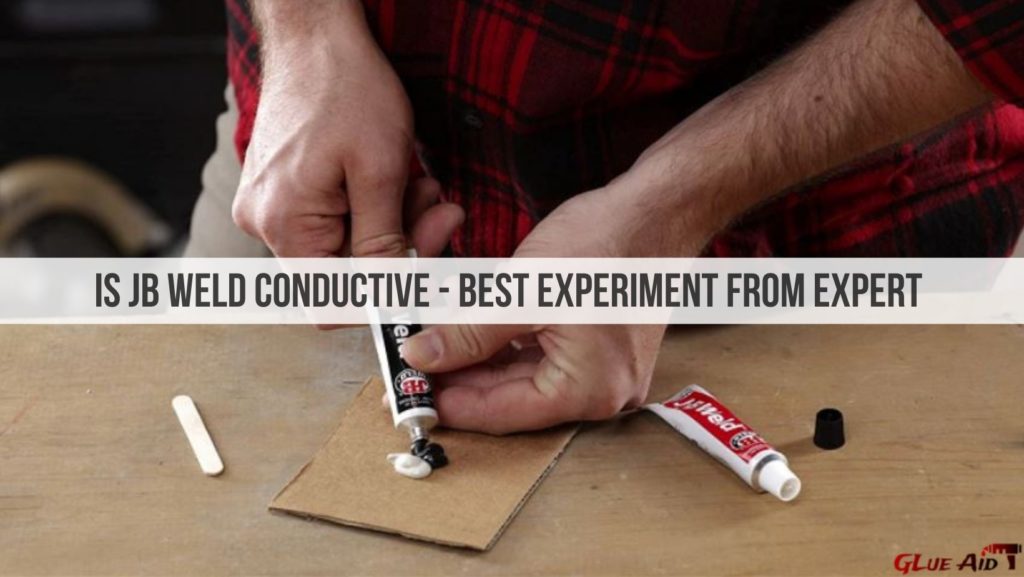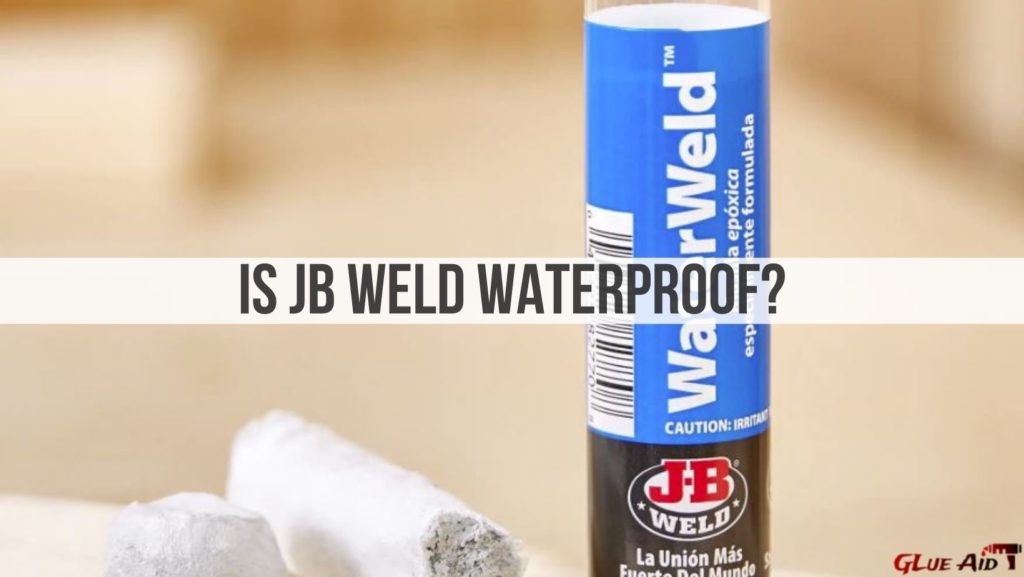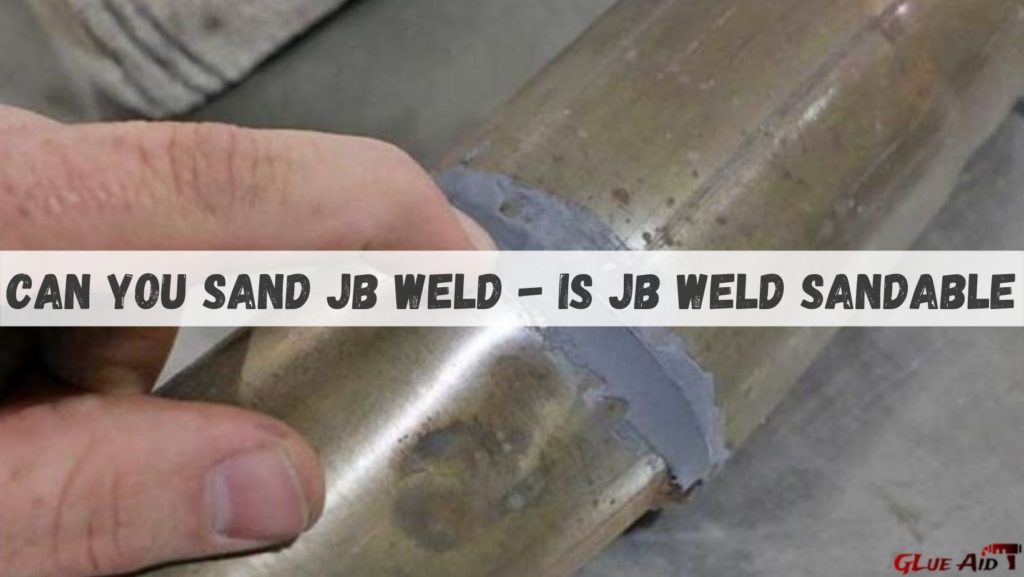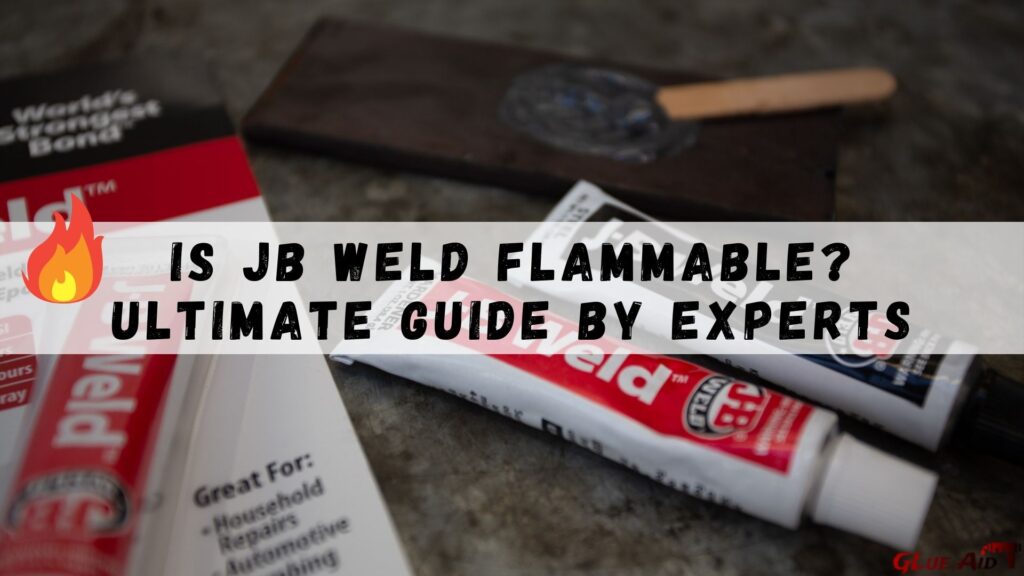JB Weld is an incredibly strong and versatile adhesive. But what will JB Weld not stick to? In this blog post, we’ll take a look at some of the things JB Weld will not stick to, so you can be sure to use them wisely. JB Weld is perfect for a variety of DIY projects, but make sure you know which surfaces it will and will not adhere to!
Table of Contents
How To Apply JB Weld?
To apply JB Weld, first, clean the surface area to be repaired with a wire brush. Then, mix equal parts of the JB Weld resin and hardener on a paper plate or some other disposable surface. Use a popsicle stick or another small, flat object to spread the mixture onto the surface to be repaired.
Be sure to apply a thick, even layer of the mixture. Once you’ve applied the JB Weld, allow it to dry for at least 4-6 hours before handling. For best results, allow the repair to cure for 24 hours before putting any weight or stress on it.
What Will JB Weld Not Stick To?
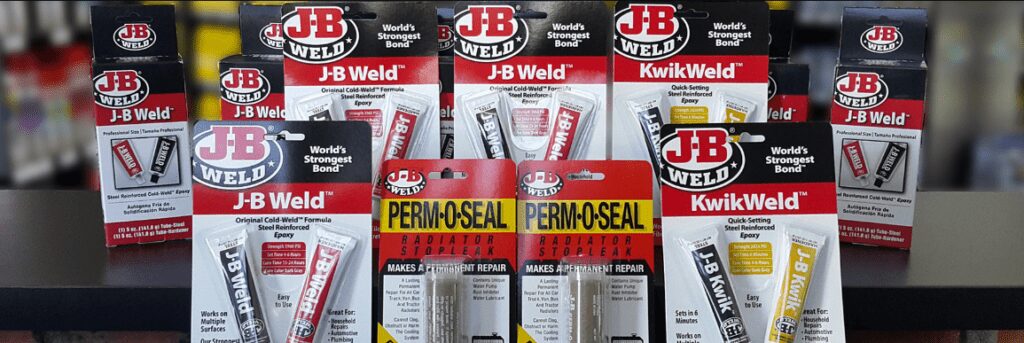
JB Weld is an incredibly versatile adhesive, but there are some things it will not stick to. JB Weld does not adhere well to:
– Plastic
– Rubber
– Glass
– Painted surfaces
– Stainless steel
– Aluminum
– Copper
If you’re unsure whether or not JB Weld will adhere to a particular surface, it’s always best to test a small area first. Apply a small amount of the mixture to the surface in question and allow it to dry. If the JB Weld holds fast, you’re good to go! If not, you’ll need to find another solution for your repair.
JB Weld is an incredibly strong and versatile adhesive. But what will JB Weld not stick to? In this blog post, we’ve taken a look at some of the things JB Weld will not stick to. Be sure to keep this information in mind when planning your next DIY project!
JB Weld In Use: Some Examples
Here are some examples of JB Weld in use.
– Repairing a cracked plastic bumper
– Fixing a broken ceramic plate
– Sealing a leaky gasket
– Attaching metal to wood
JB Weld can be used for a variety of repairs, but make sure you know which surfaces it will and will not adhere to!
How Do You Make JB Weld NOT Stick?

There is no surefire way to make JB Weld NOT stick. Once the adhesive has been applied, it will adhere to almost any surface. If you want to prevent JB Weld from sticking to a particular surface, you’ll need to apply a release agent before applying the adhesive.
Release agents are typically made of wax or silicone and can be purchased at most hardware stores. To apply a release agent, simply coat the surface with the agent and allow it to dry. Once the release agent has been applied, you can then apply the JB Weld. The release agent will create a barrier between the JB Weld and the surface, preventing the adhesive from sticking.
If you’re using JB Weld on a sensitive surface, such as plastic or glass, it’s always best to test a small area first. Apply a small amount of the mixture to the surface in question and allow it to dry. If the JB Weld holds fast, you’re good to go! If not, you’ll need to find another solution for your repair.
Read Also: Is JB Weld Conductive
Why Does JB Weld Not Stick To Plastic?

JB Weld does not stick to plastic because the adhesive is not compatible with the material. JB Weld is made of epoxy resin and a hardener, which create a strong bond when mixed together. However, this bond is not compatible with plastic materials.
When choosing an adhesive for repairing plastics, it’s important to select one that is specifically designed for the material. Super Glue, for example, is a type of adhesive that is compatible with plastic and can be used to repair plastics. If you’re unsure whether or not an adhesive will work on a particular surface, it’s always best to test a small area first. Apply a small amount of the mixture to the surface in question and allow it to dry. If the adhesive holds fast, you’re good to go! If not, you’ll need to find another solution for your repair.
JB Weld is a strong and versatile adhesive, but it will not stick to plastic. When repairing plastics, be sure to choose an adhesive that is specifically designed for the material.
Will The JB Weld Adhere To Itself?
JB Weld will adhere to itself, but it’s not recommended. The adhesive is designed to bond two different surfaces together, so using it on just one surface can result in a weaker repair. Additionally, JB Weld may not cure properly if it’s only applied to one surface. If you’re set on using JB Weld to repair a single surface, be sure to apply a thick, even layer of the mixture. Allow the repair to cure for 24 hours before putting any weight or stress on it.
FAQ About What Will JB Weld Not Stick To
Can I JB Weld Over JB Weld?
You can use JB Weld over JB Weld if you would like, but it is not necessary. JB Weld is a very strong adhesive, so it is likely that it will hold your objects together effectively.
Can JB Weld Fix A Cracked Engine Block?
JB Weld is a two-part epoxy adhesive that can be used to fix a cracked engine block. It is important to make sure that the surfaces to be glued are clean and dry before applying the adhesive. JB Weld should be applied in thin layers, and allowed to cure for 24 hours before use.
Does JB Weld Last Forever?
JB Weld is a permanent adhesive that is made specifically for metals. It is said to be incredibly strong and durable, with some people claiming it to be permanent. However, there is no scientific evidence to support this claim. JB Weld will eventually corrode and deteriorate, but how long it lasts depends on the environment it is in and the materials it is bonded to.
What Temperature Should I Apply to JB Weld?
The recommended welding temperature for J-B Weld is between 350°-400°F. The lower temperature produces a slower, but stronger weld, while the higher temperature produces a quicker, but weaker weld.
Is JB Weld Stick To Gasoline?
JB weld is not specifically designed to bond with gasoline, it is possible that it could form a seal with the fuel if applied correctly.
Is JB Weld Stronger Than Epoxy?
Two products are designed for different purposes. J-B Weld is a welding compound designed to form a permanent bond between two metal surfaces, while the epoxy is a glue designed to hold materials together. Both products have their strengths and weaknesses, so it is difficult to say which one is stronger. In general, J-B Weld is more durable and can withstand greater stress than epoxy, but it is also more difficult to apply.
To Which Surfaces Is JB Weld Resistant?
JB weld is a type of welding that is commonly used to join two metal surfaces together. It is a quick and easy process, and the weld is resistant to most types of corrosion. In particular, the JB weld is resistant to corrosion caused by salt water. This makes it a popular choice for welding metal surfaces that will be exposed to salt water, such as boat hulls and offshore pipelines.
Will JB Weld Stick To Silicone?
In general, welds are likely to stick better to materials that have higher surface energy, such as metals. Silicone has relatively low surface energy, so it is possible that the weld will not be as strong as desired.
Will JB Weld Hold A Bolt In Place?
Generally, welding will hold a bolt in place quite well. However, if there are stresses on the weld that are greater than the weld’s capacity, it may fail. Factors such as the type of weld, the material of the bolt, and the environment in which it will be used must all be considered.
Tips & Tricks of Using JB Weld Perfectly
– Read the instructions on the package before use.
– If you’re unsure whether JB Weld will adhere to a particular surface, it’s always best to test a small area first.
– Apply a release agent to surfaces you don’t want JB Weld to stick to.
– When using JB Weld on just one surface, be sure to apply a thick, even layer of the mixture.
– Allow the repair to cure for 24 hours before putting any weight or stress on it.
At Last
JB weld will not stick to everything. There are some surfaces that it will not adhere to, so be sure to test it on a small area before using it. It is a great adhesive for many surfaces, and it can be used for a variety of projects.
Relevant Resource:
